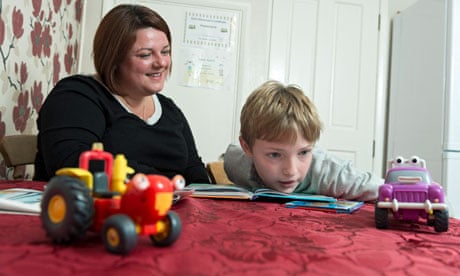At 17 days old, Jack Neighbour was diagnosed with neonatal diabetes. For the next five years, his blood sugar levels would vary wildly all day long, he had seizures and his mother, Emma, would often find him unconscious. "It was horrific, absolutely horrific. He didn't speak at all," she says.
Jack could never be left alone or with anyone who didn't know his routine. He had four injections of insulin every day and his blood sugar levels needed checking up to 10 times a day, including in the middle of the night. "That, in itself, means you have to pierce the skin with a little needle to take some blood out and test it on a machine – it was very distressing for him," says Emma. At one point, the seizures Jack suffered led to his brain being starved of oxygen and he suffered permanent brain damage that slowed his mental development.
Jack's world began to change soon after a friend of Emma's mother-in-law told her about a newspaper article she had read, describing a new genetic test for neonatal diabetes, developed by Prof Andrew Hattersley in Exeter. Emma tracked Hattersley down to ask if Jack might be tested. They quickly worked out that one of Hattersley's colleagues in Bristol had already seen Jack a few years earlier. That colleague still had some of Jack's blood and when it was tested, they found a rare genetic mutation that meant Jack could be treated with pills for his condition instead of injections.
Seven years later, Jack has left the insulin injections behind and takes just two tablets of glibenclamide every day to manage his diabetes. "Within two weeks of starting on the medication, he was off the insulin completely," says Emma. "His blood sugars had settled, he started talking. He said: 'Hello mummy' and 'combine harvester'. He liked tractors and he'd been reading books."
Emma said if parents were worried their baby was not thriving and doctors found evidence of high blood sugars, they should ask for a test for neonatal diabetes. "Although it's a very rare disorder, the earlier you can catch it and get the child on the right treatment, the less chance there is that they'll get brain damage."
The effect on the lives of everyone in Jack and Emma's family has been profound. "Unfortunately it has left Jack with the brain damage but, physically, diabetes is a non-problem. His blood sugars have been stable for the last seven years. I check his blood sugar maybe once a day; sometimes I don't. We don't worry about his blood sugars going high, he sees the doctor at the hospital once every six months and they check him over. It's completely changed our lives."
